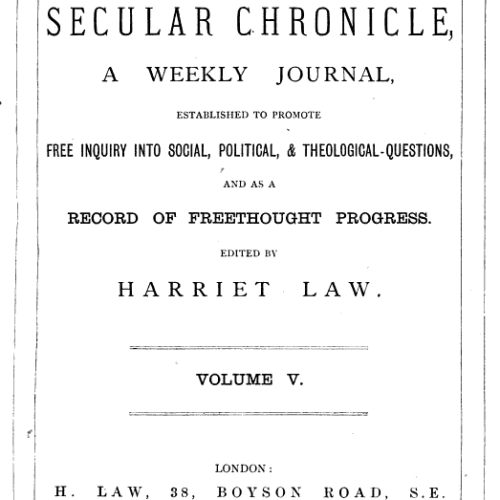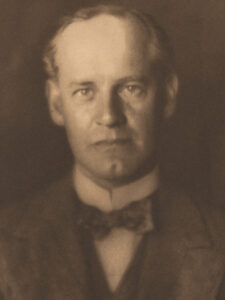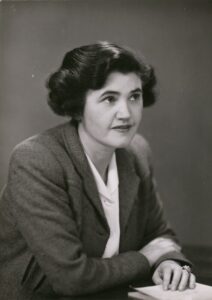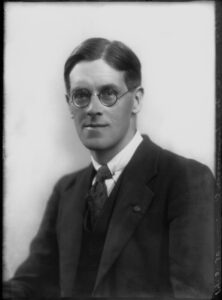

Harriet Law was a secularist and speaker, who also promoted women’s rights and socialist ideals. During the 1870s, Law’s house became a social centre for the secularist cause. Her example provides an interesting bridge between the radical secularism of the 19th century, and the emergence of the ethical societies (which became Humanists UK), with Law’s daughter Florence being raised in the former, and an active member of the latter.
Harriet Law was born Harriet Frost in Ongar, Essex on 5 November 1831. Her father was a farmer and butcher, and the family was strictly religious. Harriet initially adopted the religion of her upbringing, teaching in a Sunday school in London, but upon introduction to secularist ideas she had a significant and lifelong shift in values.
In 1855, Harriet married Edward Law, a property dealer. Both embraced secularist ideals and disavowed religion, with Harriet turning the energies previously invested in Baptist preaching towards this new cause. Within five years of her marriage, Harriet was acknowledged as the leading female secularist speaker, championing equality between the sexes as well as the separation of Church and state.
Law became president of the Freethought League in 1869, and was a co-founder in 1877 of the British Secular Union. That same year she published An Hour with Harriet Martineau. In 1876, she took over editorship of the Secular Chronicle, and in it advanced her secularist and feminist ideas. Law’s daughter, Harriet T. Law, also contributed regularly to The Secular Chronicle, profiling a range of notable freethinkers, from Edward Gibbon to Charles Darwin.
Harriet Law died from a heart attack on 19 July 1897, and was buried at Forest Hill cemetery four days later. Her daughter Florence Aspasia Law, born in 1863, went on to take an active role in the South London Ethical Society, and authored a pamphlet for the Union of Ethical Societies entitled A Religion for Everybody.
Like other freethinking women raised religious, such as Margaret Chappellsmith and Emma Martin, Harriet turned an exacting knowledge of the Bible into a tool for withering criticism of Christianity. Her example clearly links the radical secularism of the 19th century freethinkers, with the emerging organised humanism of the ethical societies: Law’s legacy of humanist reform carried on by her daughter in the Ethical movement.

…the only efficient, the only decent prayer, is Action. John Galsworthy, ‘Philosophy of Life’ in Glimpses and Reflections (1937) Best […]

Adam Duff O’Toole (Adam Dubh Ó Tuathail) was a reputed heretic, who was burned at the stake for his denials […]

Jennie Lee (also known as Baroness Lee of Asheridge) was a Scottish politician and journalist, known for her upfront orating […]

I had long put on one side the purist pacifist view that one should have nothing to do with a […]